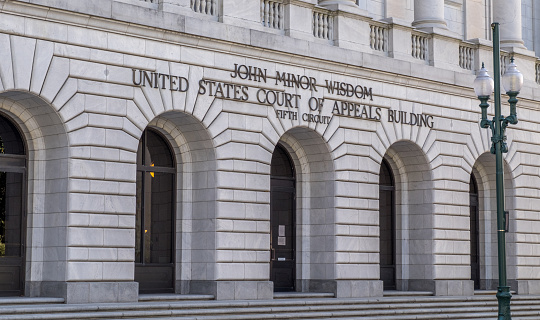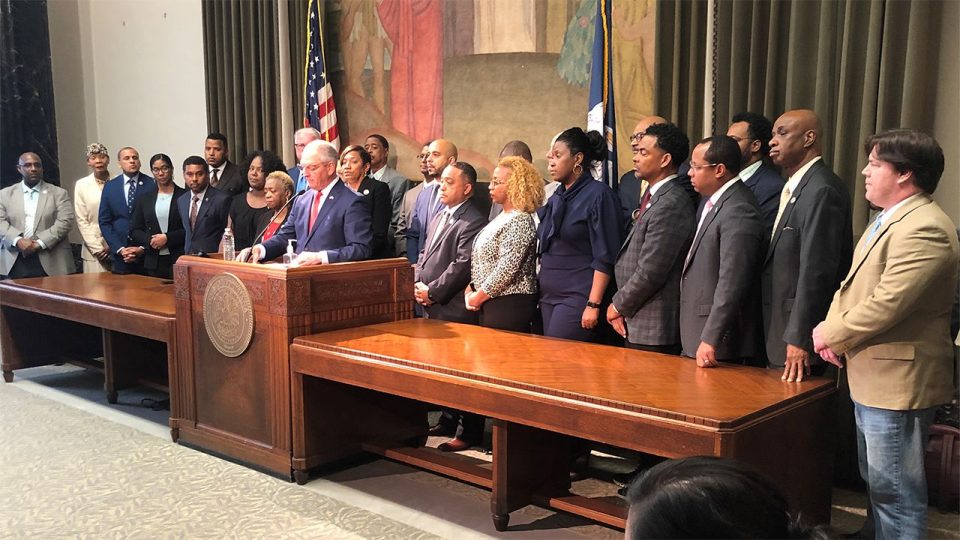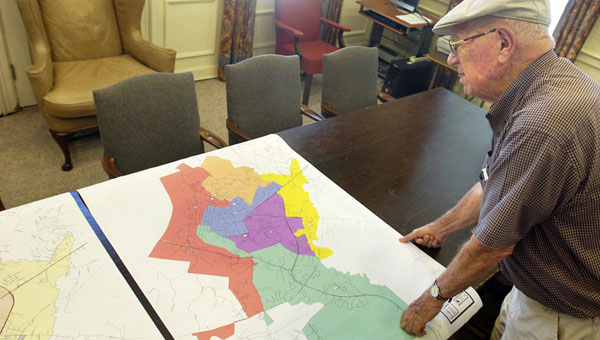If it walks like a duck, quacks like a duck, looks like a duck, it’s a duck. In February 2022, Republicans in the Louisiana Legislature drew the same discriminatory congressional maps employed ten years ago. They ignored calls for fair and equitable maps made by civil rights groups seeking a second minority-majority congressional district. Now Louisiana’s voting maps face court challenges.
State legislators must redraw maps every ten years based on Census data. Louisiana’s black population has increased, and the white population decreased. But lawmakers gerrymandered the maps to retain white representation in five of the state’s six congressional districts.
No one can prove the white partisan legislators purposefully rigged the maps to dilute the black vote. But if it walks like a duck…
Louisiana Congressional District 2 is the only majority-minority district when proportionally, there should be two black-majority congressional districts. Whites comprise 58 percent of the state population, and blacks 33 percent.
Governor John Bel Edwards vetoed the maps on March 9.
A group of civil rights attorneys on March 14 filed a federal lawsuit against Secretary of State Kyle Ardoin. They seek to prevent him from enforcing the tainted maps.

The plaintiffs include the Black Voters Matter Capacity Building Institute, the Louisiana State Conference of the NAACP, and several individuals. In this case, civil rights attorneys are challenging newly drawn state House and Senate district maps. They claim the maps unlawfully minimize the voting strength of Black Louisianans in state elections.
Attorney Ron Wilson is recognized nationwide as a leading voting rights lawyer. Wilson is a litigator on the case. He said the maps result from “White voter suppression to minimize and eliminate black voting power, that’s all that is. Every time you overcome one obstacle, there’s another,” Wilson says of the decades-long battle for voting rights and fair maps.
The lawyers are asking the Court to stop the state from conducting state legislative elections. “The Louisiana Legislature was obligated to create new minority opportunity districts for both the state senate and the state house of representatives. But they refused to do so,” Wilson explains.
” It was possible to draft a statehouse plan with between 35-39 districts where blacks are the majority of voters,” says Wilson. Currently, blacks are the majority in 29 state districts. “That would have created nine new majority-minority legislative districts, not present in the new bill. It’s also possible to draw a state senate plan with 14 districts in which black voters comprised the majority of the voting-age population, adding three new majority opportunity districts. That’s absent in the present state plan,” Wilson continues.
Driven by self-interest, race, and partisan politics, the Republican-dominated legislature overrode the Governor’s veto on March 30.

Surrounded by the Louisiana Legislative Black Caucus, Governor Edwards expressed disappointment in those who voted to override his veto at a press conference. “I was disappointed but certainly not surprised. I would be more disappointed if I were complicit in having a map that I think is so unfair and unjust. Nowhere in Louisiana, not in the House, Senate, Congress, Public Service Commission or on the BESE Board do African-Americans have districts where they have the opportunity to elect members consistent with their population.”
“As I’ve said before, the most egregious of these situations is in the U.S. Congress where we have six districts and exactly one majority-minority district when the African-American population is one-third of the state population. Two need to be minority districts. It’s a simple fact and simple fairness. It’s easy to understand. What is not easy to understand is why the majority in the House and Senate refused, multiple times, to do what is right and what is fair,” Edwards adds.
The Governor took issue with the lengths blacks must for fair and equitable voting rights. “Nobody should have a Voting Rights Act to tell them what’s fair, and nobody should have to have a court to interpret and apply the Voting Rights Act and tell us what we did is unfair. It’s sad and tragic that Louisiana in 2022 is not ready to come out of some form of supervision.”
LOUISIANA’S VOTING MAPS FACE COURT CHALLENGES

Several Louisiana Legislative Black Caucus members commented on their fellow legislators’ actions. “It’s ridiculous that it didn’t happen. Very disrespectful and disappointing,” State Senator Jimmy Harris told Think504. Harris was a member of the Redistricting Committee that toured the state. State Senator Joe Bouie adds, “It’s a slap in the face to our nation’s Democracy and Civil Rights Act.”
That same day, the NAACP Legal Defense and Educational Fund, Inc. (LDF), ACLU of Louisiana, and Paul, Weiss, Rifkind, Wharton & Garrison LLP filed a lawsuit on behalf of the Louisiana State Conference of the NAACP, the Power Coalition for Equity and Justice, and individuals challenging the Congressional maps as a violation of Section 2 of Voting Rights Act of 1965.
This lawsuit asks the Federal Court to stop congressional elections based on the maps that dilute the black vote. The lawyers also want the Court to compel Louisiana to adopt a new redistricting plan. They want two districts in which black voters have an opportunity to elect a candidate of their choice. Currently, there is only one black-majority congressional district in the state out of six congressional seats.
“Louisiana’s white population is dramatically over represented. And while only 58% of Louisiana’s population is non-Hispanic white, white voters—whose votes also break down along racial lines in most of the state—control the outcome in five out of six—or 83.3%—of the districts under the maps. That control has meant that no Black candidate has won election to any of those seats since the 19th century,” the NAACP-LDF said in a statement.
Related: Veto is all about race
‘It’s been years…for too long, for too many years, Black people in the state have had to fight and organize for a second majority-minority district,” Attorney Tracie Washington, a lawyer in Nairne v. Ardoin, the March 30 lawsuit, told Think 504.
Also, Washington, the founder and director of The Louisiana Justice Institute (LJI), adds, “The LJI signed on to this project early with the hope that we could implore our state legislature to do the right thing without having to file a lawsuit.” The LJI, ACLU, Power Coalition, and other groups presented fair and equitable maps to the Louisiana Legislature but only found support among black legislators. Not one white legislator voted to add minority opportunity districts. So now, Louisiana’s discriminatory voting maps face court challenges.

“The Louisiana Legislature had the opportunity to ensure our district maps were constitutional, but instead they continued on the path that has led to decades of diluting Black voting power,” said Attorney Alanah Odoms, ACLU of Louisiana Executive Director.
“Louisianans deserve better from our elected officials, but those representatives aren’t letting us have a choice, so once again, we’re fighting back in the courts to protect the rights for all. It is well past time for Louisiana to turn the page and allow all citizens to participate fully in our democracy.”
“From the perspective of a black woman, we are chronic voters, and they rely on our votes. We should be rewarded for our tenacity with respect, and that should come in the form of a second majority-minority congressional district,” Williams adds.
“I can’t imagine there’s a more compelling case for the courts to look at and overturn than the Congressional map here in Louisiana. I believe it’s (map) an obvious violation of the Voting Rights Act.,” Governor Edwards concludes.
If the federal courts don’t intervene and the maps are enforced, the same predominately white congressional districts and state senate and house districts will remain in place for another decade.
If the past is prologue, there is little hope for any federal court, especially not the U.S. Supreme Court, to mandate the redrawing of gerrymandered maps.
“The U.S. Supreme Court has shown a willingness to allow unlawful elections to proceed. There’s the Purcell rule, a policy adopted by the Court for not enjoining elections. They (Supreme Court justices, know those districts disfavor black voters. Rather than correct it (gerrymandered map), they allow the elections to proceed.,” Wilson explains.
“All that’s left is for plaintiffs to seek relief after the harm has taken place. U.S. Supreme Court will then kick it back to the state to draft a plan required by the law. You can be in Court 3-4 years which mean people can stay in office.”

